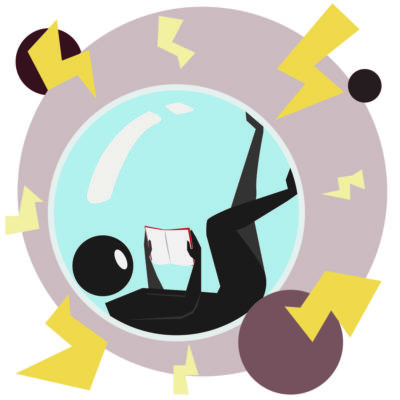 Don’t let stress take control
Don’t let stress take control
Life without stress doesn’t exist, so our goal should be to manage it effectively instead of eliminating it. Stress is our body’s natural physiological response to external events – especially those that bring novelty or pose a threat. These stressors (the factors triggering stress) often stem from our work or family life but can also arise from illness or other challenges.
 Our brain continuously monitors our surroundings and the stimuli we encounter, and if it perceives something as dangerous, it triggers the stress response. If we see a potential benefit in the situation, we experience positive stress (eustress), whereas if we perceive it as harmful, we suffer negative stress (distress). Individual differences, past experiences, and personality traits influence how we react to stressors. Some people enjoy stepping out of their comfort zone and may even seek out high-risk situations – think of extreme sports enthusiasts or those who thrive on public speaking or high-pressure challenges. Meanwhile, others may experience nausea or freeze before such events.
Our brain continuously monitors our surroundings and the stimuli we encounter, and if it perceives something as dangerous, it triggers the stress response. If we see a potential benefit in the situation, we experience positive stress (eustress), whereas if we perceive it as harmful, we suffer negative stress (distress). Individual differences, past experiences, and personality traits influence how we react to stressors. Some people enjoy stepping out of their comfort zone and may even seek out high-risk situations – think of extreme sports enthusiasts or those who thrive on public speaking or high-pressure challenges. Meanwhile, others may experience nausea or freeze before such events.
Positive stress enhances performance, sharpens concentration, boosts energy levels, brings pleasant emotions (e.g., joy, curiosity), and can even strengthen social relationships. Falling in love, for example, is a form of eustress – even though many describe it as feeling “butterflies in their stomach” or a “racing heart”. Even anxiety can be beneficial if it encourages caution and helps us avoid danger. By strengthening our stress tolerance and gradually pushing the boundaries of our comfort zone, we gain new experiences and face situations that broaden and enhance our coping mechanisms. Preventing burnout is always easier than recovering from it – being prepared for stressful situations can help us avoid the severe consequences of chronic stress.
In contrast, negative stress weakens the immune system, reduces performance and focus, and leads to scattered attention. Changes in appetite and sleep patterns further exhaust the body. During distress, unpleasant emotions such as fear or anger take over, which can negatively impact our social relationships.
The three phases of the stress response are:
Alarm phase: The body encounters a stressor for the first time. At this stage, three possible reactions may occur: fight, flight, or freeze.
Resistance or adaptation phase: If the stressor persists, the body must maintain its stress response over time, putting strain on the nervous, immune, and hormonal systems.
Exhaustion phase: If chronic stress extends the previous phase for too long, the body gradually depletes all of its resources, increasing vulnerability to illnesses and their complications.
How can we counteract the effects of negative stress?
Awareness is key. If we notice signs of stress in ourselves or someone around us, the first step is to identify the cause. Understanding the source of stress is crucial for managing the situation and avoiding instinctive but counterproductive reactions. Assessing the situation can be done in several ways – through self-reflection, discussions with a friend, or professional guidance.
Once we identify the stressor, there are multiple ways to minimize its harmful effects. Our book provides numerous strategies, from shifting perspectives to seeking help and practicing relaxation techniques.
Many people struggle to stand up for themselves. If this is a challenge for you, we highly recommend visiting the following website, where you can develop communication skills, learn effective decision-making, and manage conflicts more consciously.
Engaging in activities like hobbies or sports can help with stress management, relaxation, and recovery. Incorporating physical activity into daily life is not only beneficial but also essential for maintaining good health.
For this purpose, we wholeheartedly recommend the group-based online training sessions offered by our Health Promotion Center.
Picture1: cottonbro studio: https://www.pexels.com/hu-hu/foto/asztal-iskola-arctalan-diak-4769486/
Picture2:Andrea Piacquadio: https://www.pexels.com/hu-hu/foto/hajnal-pirkadat-ferfi-emberek-3771055/